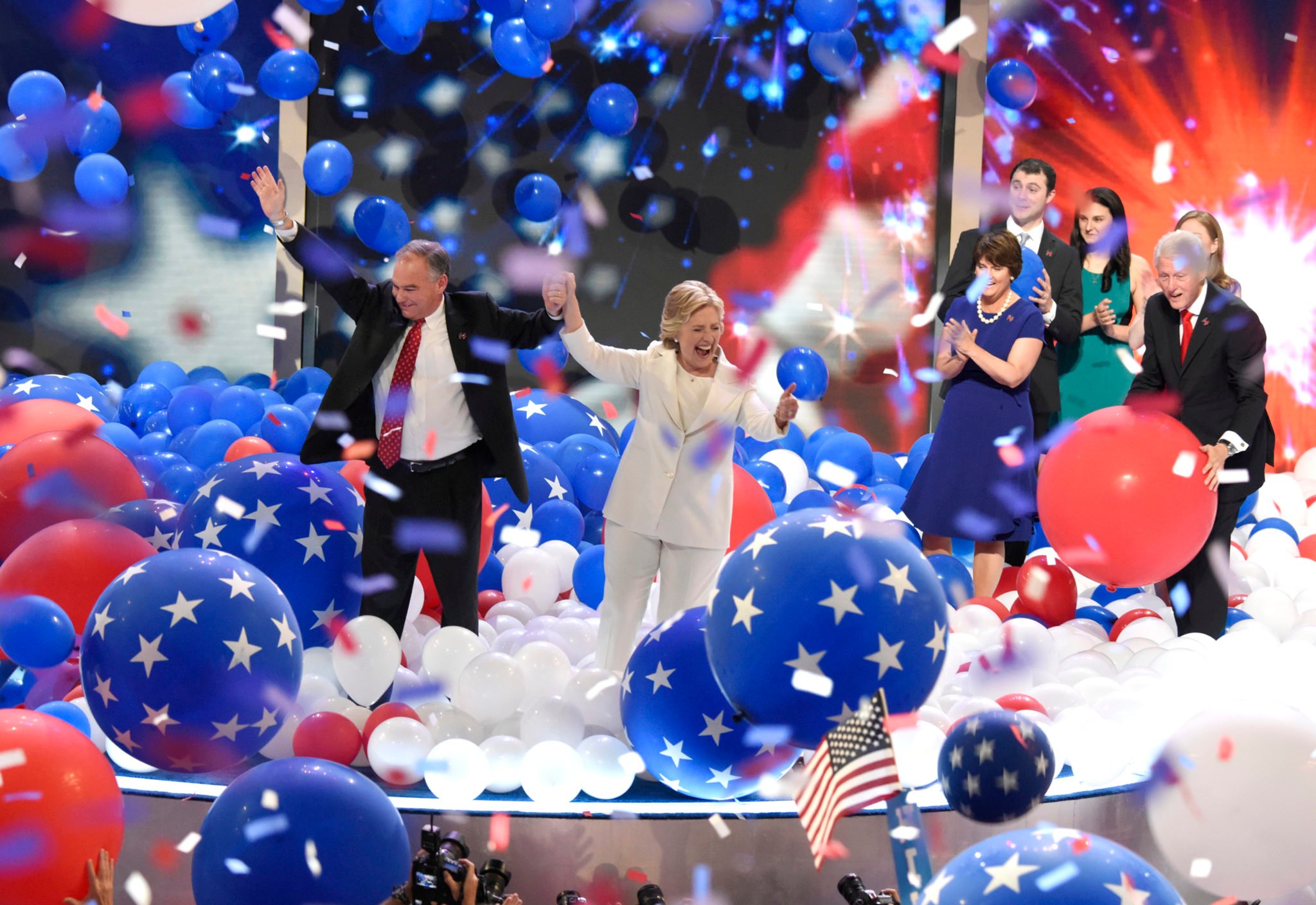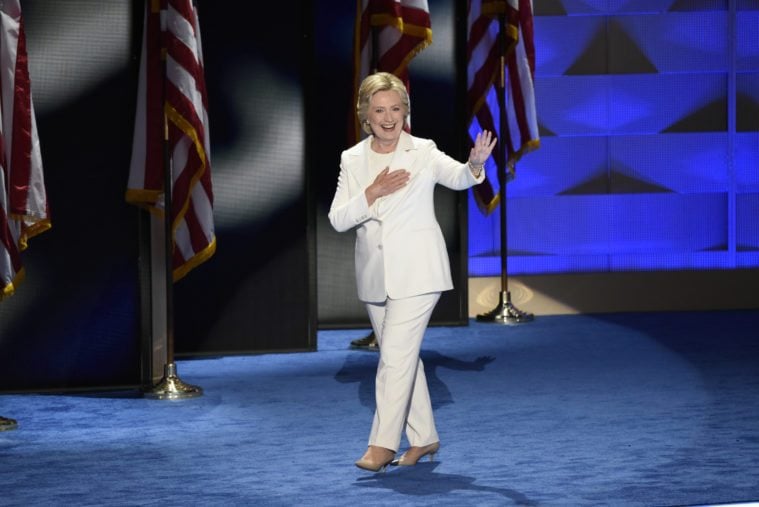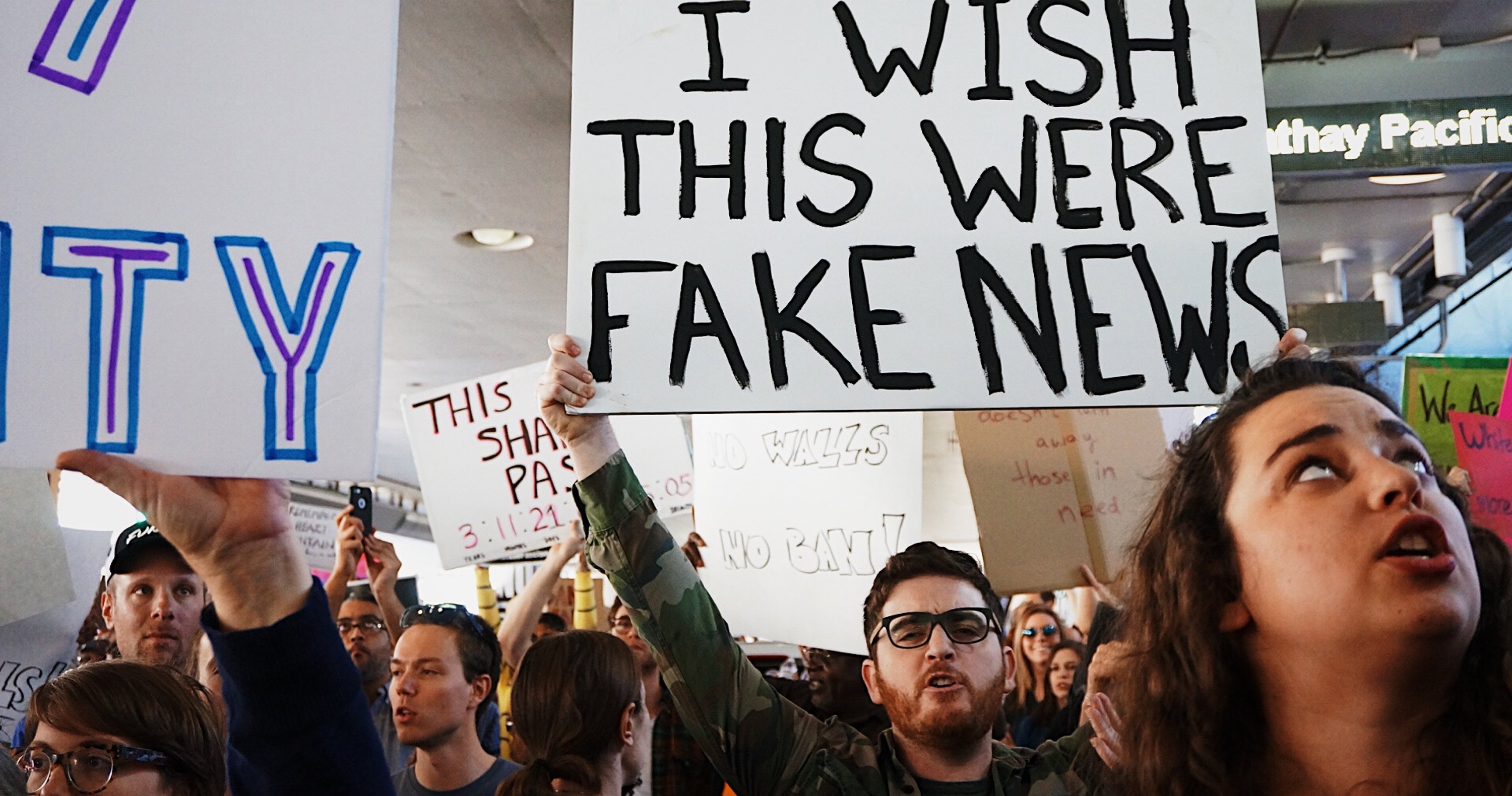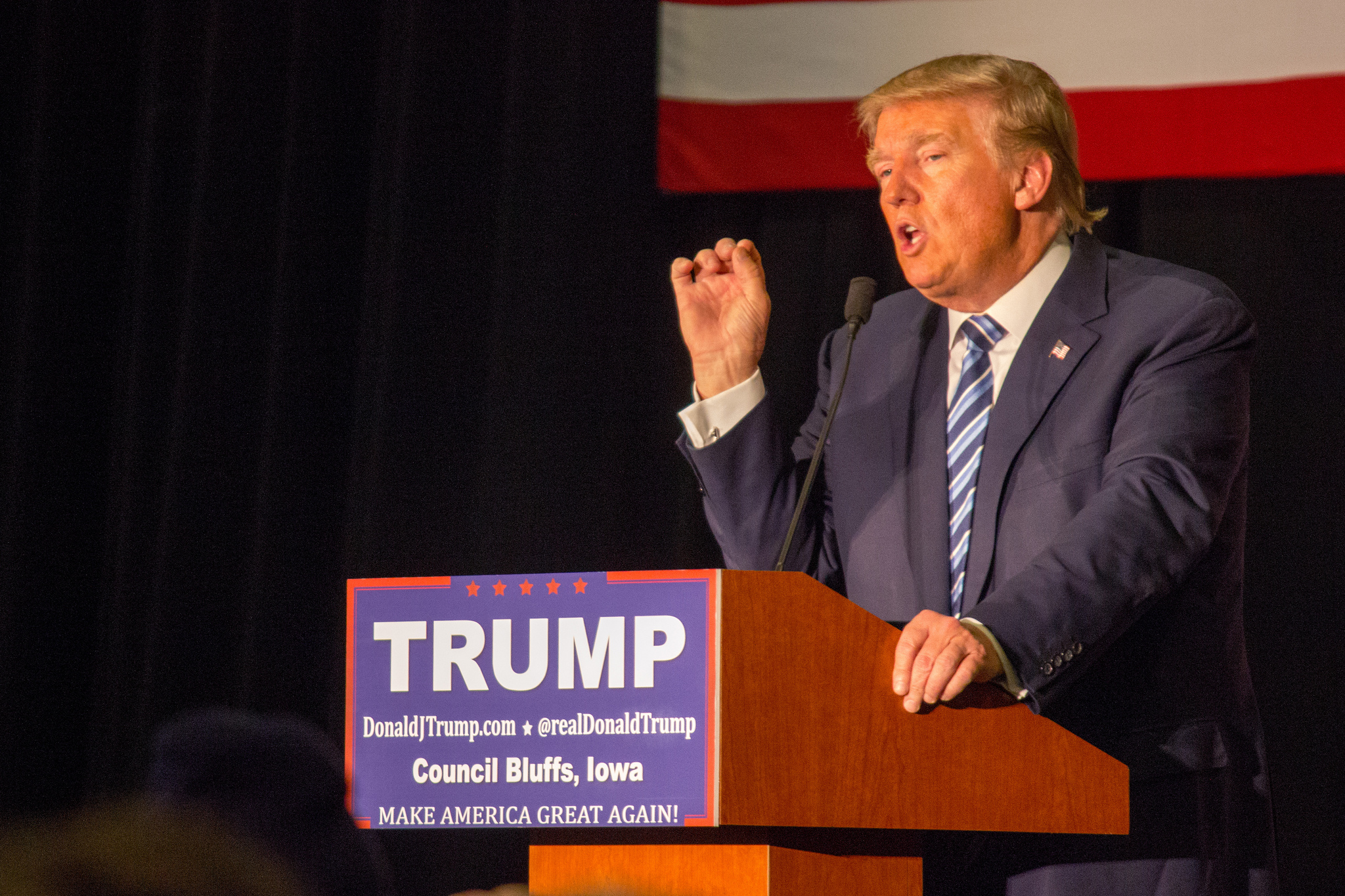
At the DNC, Dems Launch a New Left — Right into the Center
With the GOP in Trump-afflicted disarray, the Dems have wrested the mantle of strength, security and stability away from the right with ease.

Throughout the 2016 Democratic presidential primary, the party’s two factions, the left and the center-left, fought for months in a scrap-fight that many observers thought would leave it weakened. Yet both factions have seemed to emerge from the contest stronger than before, though on very different trajectories. The left did much better than it could have hoped to do with the candidacy of Bernie Sanders, and it now has at least a shot at extending its run into other areas of American political life, even though it has been shunted away from real power in the party.
Meanwhile the mainstream center-left, empowered by the Republican collapse, is out to claim new territory, positioning the Democratic Party as the party of patriotism, stability and security, to all of which the GOP once clung tightly. Only time will tell whether this is a one-off, thanks to the presence of a madman on the opposite ticket, or a step in the process of a real party realignment, as happens in American politics every few decades. But this week’s Democratic National Convention in Philadelphia felt like a reformation moment.
Given the months of division and negative coverage of the primary fight, the convention could really not have gone any better for the Clinton campaign — it was a smooth, exceptionally well-produced piece of stagecraft with strong performances from key figures. The Democrats have huge advantages this year: While Trump has alienated most of his own party, the Clintons have the Obamas and former president Bill as surrogates, still hugely popular in many key Democratic demographics. They had a huge advantage on the electoral map to start with, and pre-convention polls had Hillary Clinton in the lead or tied in all swing states plus beet-red Arizona.
Apart from a few rough moments at the beginning of the first day of the convention, when Sanders supporters’ repeatedly booed Clinton’s name, there was only token dissent on the floor. By Clinton’s speech Thursday night, her people had learned to how to shut up hecklers, circulating a list of proposed counter-chants for each type of heckle. Those awkward bursts of untimely “Hill-a-ry” chants occasionally seemed to throw her off, but it was better than the alternative.
Dems have embraced the kind of breathless pro-’Murka optimism more commonly found at Republican gatherings, until Donald Trump mired the GOP in Dirty Harry-style paranoia and nationalism.
Clinton’s speech contained messages of economic populism: making college “tuition-free for the middle class and debt-free for all,” improving access to credit because “too many dreams die in the parking lots of banks,” insisting that “Wall Street, corporations, and the super-rich are going to start paying their fair share of taxes.”
But the most remarkable part of last night’s events was the strong — even weepy — positive reception Clinton got from a lot of centrist and Republican figures. Over the course of the convention, it’s become clear that Democrats are trying something different this year. They hope, as the Washington Post’s Greg Sargent writes, to “lay claim to the mantle of a sober, responsible, sane, and mature governing party” — a centrist party — that can make “deeper-than-usual inroads among GOP-aligned constituencies, such as white and suburban women and college educated whites.”
If that sounds familiar, it might be because it’s not too distinct from the Democratic Leadership Council’s old plan for the party, the one that characterized the first Clinton administration. It’s a plan that could, at least potentially, make for a huge payoff in November, a landslide win and a shift in Congress. It also means that they’re setting the left — the Berners — firmly and gently aside.
This new approach meant embracing the kind of breathless pro-’Murka optimism more commonly found at Republican gatherings, until Donald Trump mired the GOP in Dirty Harry-style paranoia and nationalism. Speakers peppered their remarks with frequent references to the founding fathers and other greats of American history, including odes to entrepreneurs like Thomas Edison and Steve Jobs. Republicans and independents won prominent speaking slots to endorse Hillary. Democrats stood for the American experiment, the messaging went, and Donald Trump is its antithesis.
Just a decade ago, Republicans were able sweep elections by using the flag as a bludgeon against the libs. It’s jarring to see Democrats so comfortably lay claim to American identity and its shared values — using the imagery of the military, the intelligence community, veterans, and disaffected converts from the Reagan revolution.
The major risk here — which isn’t playing out yet — is that a lot of voters feel much less positive about the country than Clinton campaign strategists are. That the message of continuity, and the general preservation of the status quo with small tweaks and reforms to come, won’t appeal to people who are stagnating and suffering.

It’s not that Clinton is unaware of the anger: “Right now, an awful lot of people feel there is less and less respect for the work they do,” she said on Thursday. “And less respect for them, period. Democrats are the party of working people.”
If this is a realignment, it’s worth thinking about who the party may be parting ways with. Take this interview with Kirk Voorhees, a 56-year-old truck driver from New Jersey, a Sanders supporter who says he probably can’t vote for Clinton. Voorhees isn’t a nut or a crank. He’s someone who’s thought a lot about how the Democratic Party’s past experience in power has affected his material circumstances.
He voted for Bill Clinton twice, but after Bill declared that “the era of big government is over,” Voorhees lost his well-paying, union-membership government job at the base where his father had worked before him. He took lower-paying jobs to support his kids, who are now burdened with high levels of student debt. Things look bleaker than they used to, and still do. Sanders was the only candidate he’d followed who felt like an advocate for him, and the end of the campaign has hit him hard. “I’m really lost right now,” he says. “It really feels like we had a death in the family.”
In a two-party system, coalitions can’t represent everybody. If the party is looking to the center this November, to skittish business-class Republicans and suburban moms, it can’t really represent people like Voorhees. Clinton may be on track for the strong mandate she wants, if not a landslide — but the party is losing something, too.
There are a lot of men and women being left out of the new prosperity parts of the country have experienced in the last few decades. That’s partially what’s driving Trumpmania, though his presidency would prove even more cancerous to them than its predecessors. But a lot of people, like Voorhees, don’t want Trump: They just want somebody up high to show they care about them, in a material way. They may be waiting for a while.
Read the rest of the Observer‘s coverage from the Democratic National Convention here.


